Scholarly Citations
Abdul-Aleem, Zaid. 1996. African Muslim Survival and Adaptation in Salvador, Brazil: Males after the Revolt of 1835. Duke.
Abdul’Aziz, Ibrahim. 2015. “Freedom Brings Stigma and Fresh Fears for Boko Haram ‘Wives.’” The New Humanitarian, September 1, 2015. http://www.tribuneonlineng.com/freedom-brings-stigma-and-fresh-fears-boko-haram-‘wives.’
Abubakar Monguno, Yagana Imam, Ndeye Sow, Kim Toogood, Ola Alhaddad, Yagan Largema, Lydia Ibrahim Wakawa, et al. 2016. “’ Bad Blood ’ Perceptions Od Children Born of Conflict-Related Sexual Violence and Women and Girls Assicioated with Boko Haram in Northwest Nigeria.” UNICEF/ International Alert. https://www.hrw.org/report/2014/10/27/those-terrible-weeks-their-camp/boko-haram-violence-against-women-and-girls.
Adebayo, Anthony Abayomi. 2014. “Implications of ‘Boko Haram’ Terrorism on National Development in Nigeria: A Critical Review.”Mediterranean Journal of Social Sciences 5 (16): 480–89. https://doi.org/10.5901/mjss.2014.v5n16p480.
Abubakar Monguno, Yagana Imam, Ndeye Sow, Kim Toogood, Ola Alhaddad, Yagan Largema, Lydia Ibrahim Wakawa, et al. 2016. “’ Bad Blood ’ Perceptions Od Children Born of Conflict-Related Sexual Violence and Women and Girls Assicioated with Boko Haram in Northwest Nigeria.” UNICEF/ International Alert. https://www.hrw.org/report/2014/10/27/those-terrible-weeks-their-camp/boko-haram-violence-against-women-and-girls.
Adebayo, Bukola. 2019. “Nigeria Police Rescue More than 300 Boys and Men Held in ‘Dehumanizing Conditions.’” CNN World, September 27, 2019. https://www.cnn.com/2019/09/27/africa/nigeria-police-rescue-students-intl/index.html.
Adegbulu, Femi. 2011. “Pre-Colonial West African Diplomacy: It’s Nature and Impact.” The Journal of International Social Research 4 (18): 170–82. http://www.sosyalarastirmalar.com/cilt4/sayi18_pdf/2_tarih_uluslararasiiliskiler/adegbulu_femix.pdf.
Adenuga, Olumide Afolarin. 2012. “Journal of Sustainable Development in Africa (Volume 14, No.1, 2012).”Journal of Sustainable Development in Africa 14 (1): 228–44.
Adenuga, Olumide Afolarin. 2012. “Journal of Sustainable Development in Africa (Volume 14, No.1, 2012).”Journal of Sustainable Development in Africa 14 (1): 228–44.
Adesoji, Abimbola. 2010. “The Boko Haram Uprising and Islamic Revivalism in Nigeria.” Africa Spectrum 45 (2): 95–108. https://doi.org/10.1177/000203971004500205.
Ado-kurawa, Ibrahim. 2004. “The Jihad and the Consolidation of Sudanic Intellectual Tradition.”International Conference on the Bicentenary of the Sokoto Caliphate 1804-2004.
AFP, and Agence France Presse. 2019. “Boko Haram Kidnaps 17 Youths in North Cameroon?: Officials.”Yahoo! News , December 5, 2019. https://news.yahoo.com/boko-haram-kidnaps-17-youths-north-cameroon-officials-175538087.html.
Africa Report. 2016. “Nigeria: Women and the Boko Haram Insurgency.”International Crisis Group. Brussels, Belgium. crisisgroup.org.
Agbiboa, Daniel. 2015. “Resistance to Boko Haram: Civilian Joint Task Forces in North-Eastern Nigeria.”Conflict Studies Quarterly, no. Special Issue: 3–22. http://www.csq.ro/wp-content/uploads/1-Daniel-AGBIBOA.pdf.
Agbiboa, Daniel. 2013. “The Ongoing Campaign of Terror in Nigeria: Boko Haram versus the State.”Stability 2 (3): 1–18. https://doi.org/10.5334/sta.cl.
Agbiboa, Daniel E. 2014. “Terrorism without Borders: Somalia’s Al-Shabaab and the Global Jihad Network.”Journal of Terrorism Research 5 (1 (special issue)): 27–34. https://www.academia.edu/6054958/Terrorism_without_Borders_Somalias_Al-Shabab_and_the_Global_Jihad_Network.
Agbiboa, Daniel E, and Benjamin Maiangwa. 2014. “Nigeria United in Grief; Divided in Response: Religious Terrorism, Boko Haram, and the Dynamics of State Response.”African Journal on Conflict Resolution 14 (1): 63–97. https://www.ajol.info/index.php/ajcr/article/view/108895.
Agbiboa, Daniel E. 2014. “Peace at Daggers Drawn? Boko Haram and the State of Emergency in Nigeria.”Studies in Conflict and Terrorism 37 (1): 41–67. https://doi.org/10.1080/1057610X.2014.853602.
Agbiboa, Daniel Egiegba. 2013. “Why Boko Haram Exists?: The Relative Deprivation Perspective.”African Conflict and Peacebuilding Review 3 (1): 144–57. https://www.jstor.org/stable/10.2979/africonfpeacrevi.3.1.144.
Agbiboa, Daniel Egiegba. 2013. “Ethno-Religious Conflicts and the Elusive Quest for National Identity in Nigeria.”Journal of Black Studies 44 (1): 3–30. https://doi.org/10.1177/0021934712463147.
Aghedo, Iro. 2014. “Old Wine in a New Bottle: Ideological and Operational Linkages Between Maitatsine and Boko Haram Revolts in Nigeria.”Aghedo, Iro, and Surulola James Eke. 2013. “From Alms to Arms: The Almajiri Phenomenon and Internal Security in Northern Nigeria.” 28 (3): 97–123. https://www.researchgate.net/publication/280309828_From_Alms_to_Arms_The_Almajiri_Phenomenon_and_Internal_Security_in_Northern_Nigeria.
Aghedo, Iro, and Oarhe Osumah. 2014. “Insurgency in Nigeria: A Comparative Study of Niger Delta and Boko Haram Uprisings.”Journal of Asian and African Studies 1 (15): 1–15. https://doi.org/10.1177/0021909614520726.
Aghedo, Iro, and Oarhe Osumah. 2012. “The Boko Haram Uprising: How Should Nigeria Respond?”Third World Quarterly 33 (5): 853–69. https://doi.org/10.1080/01436597.2012.674701.
Ahmad, Murtada. 2013.Boko Haram in Nigeria: Its Beginnings, Principles and Activities in Nigeria. SalafiManhaj. Salafi Manhaj. www.SalafiManhaj.com.
Ahmadou, Sehou. 2010. “L’esclavage Dans Les Lamidats de l’Adamaoua (Nord-Camaroun), Du Début Du XIXe a La Fin Du XXe Siecle.” Yaoundé: Université de Yaoundé I. https://journals.openedition.org/etudesafricaines/15030.
Ahokegh, A.F. 2012. “Boko Haram: A 21st Century Challenge in Nigeria.”European Scientific Journal 8 (21): 46–55. http://www.eujournal.org/index.php/esj/article/view/334.
Ajakaiye, Olu, Afeikhena T. Jerome, Olanrewaju Olaniyan, Kristi Mahrt, and Olufunke A. Alaba. 2014. “Multidimensional Poverty in Nigeria: First Order Dominance Approach.”WIDER Working Paper. https://doi.org/10.13140/RG.2.1.3550.9203.
Ajanaku, Armsfree. 2020. “Global Powers and Resilience of Boko Haram.”The Guardian, Nigeria, January 19, 2020. https://guardian.ng/saturday-magazine/cover/global-powers-and-resilience-of-boko-haram/.
Ajayi, A I. 2012. “‘Boko Haram’ and Terrorism in Nigeria: Exploratory and Explanatory Notes.”Global Advanced Research Journal of History, Political Science and International Relations 1 (5): 103–7. http://augustusconsulting.co.za/bhubhuzz/uploads/2015/01/Boko-Haram-and-Terrorism-in-Nigeria-by-Ajayi.pdf.
Ajibola, Omobuwajo Olufemi. 2015. “Terrorism and Insurgency in Northern Nigeria: A Study of the Origins and Nature of Boko Haram.”Research on Humanities and Social Sciences 5 (12): 6–16. https://s3.amazonaws.com/academia.edu.documents/39758532/Terrorism_and_Insurgency_in_Northern_Nigeria.pdf?response-content-disposition=inline%3B filename%3DTerrorism_and_Insurgency_in_Northern_Nig.pdf&X-Amz-Algorithm=AWS4-HMAC-SHA256&X-Amz-Credential=AKIA.
Akanji, Olajide O. 2015. “Security Crisis in Nigeria: Boko Haram Insurgency and the Prospects of Peace.”Connlict Studies Quarterly Special Issue, 58–73. http://www.csq.ro/wp-content/uploads/4-Olajide-O.-AKANJI.pdf.
Akinbi, Joseph Olukayode. 15AD. “Examining the Boko Haram Insurgency in Northern Nigeria and the Quest for a Permanent Resolution of the Crisis.”Global Journal of Arts, Humanities and Social Sciences 2 3 (8): 32–45. https://www.academia.edu/33032625/EXAMINING_THE_BOKO_HARAM_INSURGENCY_IN_NORTHERN_NIGERIA_AND_THE_QUEST_FOR_A_PERMANENT_RESOLUTION_OF_THE_CRISIS.
Akinola, Adeoye O., and Oluwaseun Tella. 2013. “Boko Haram Terrorism and Nigeria’S Security Dilemma: Rethinking the State’S Capacity.”International Journal of Innovative Social Sciences & Humanities Research 3 (3): 70–78. https://www.researchgate.net/profile/Adeoye_Akinola/publication/260201390_BOKO_HARAM_TERRORISM_AND_NIGERIA’S_SECURITY_DILEMMA_RETHINKING_THE_STATE’S_CAPACITY/links/0a85e53021fd631236000000.pdf.
Akinola, Olabanji. 2015. “Boko Haram Insurgency in Nigeria: Between Islamic Fundamentalism, Politics, and Poverty.”African Security 8 (1): 1–29. https://doi.org/10.1080/19392206.2015.998539.
Akpa, Joan Inikpi. 2015. “Boko Haram: Islamism, Politics, Security and the State in Nigeria.”In African Security Review, edited by Marc-Antoine Pérouse de Montclos, 33–62. https://doi.org/10.1080/10246029.2015.996023.
Akubor, Emmanuel Osewe. 2011. “Civil Unrest in Northern Nigeria: Beyond the Literal ‘Boko Haram.’”The Constitution, A Journal of Constitutional Development 11 (4): 71–93. https://www.researchgate.net/profile/Emmanuel_Akubor/publication/328744190_CIVIL_UNREST_IN_NORTHERN_NIGERIA_BEYOND_THE_LITERAL_BOKO_HARAM/links/5be063ef4585150b2ba0a3fb/CIVIL-UNREST-IN-NORTHERN-NIGERIA-BEYOND-THE-LITERAL-BOKO-HARAM.pdf.
Aky?ld?z, Osman. 2012. “Boko Haram Örgütünün Amac? Nedir?”Haksoz Haber, January 19, 2012. https://s3.amazonaws.com/academia.edu.documents/38507911/JH_Boko_Haram_and_its_Muslim_Critics_2014.pdf?response-content-disposition=inline%3B filename%3DBoko_Haram_and_its_Muslim_critics_Observ.pdf&X-Amz-Algorithm=AWS4-HMAC-SHA256&X-Amz-Credential=AKIAIWO.
Jazeera, Al. 2016. “Nigeria: Rescued Girl Longs for Boko Haram ‘Husband.’”AllAfrica, February 5, 2016. http://allafrica.com/stories/201602091298.html.
Alao, David Oladimeji, and Clement Oluwasegun Atere. 2012. “Boko-Haram Insurgency in Nigeria?: The Challenges and Lessons.”Singaporean Journal of Business , Economics and Management Studies 1 (4): 1–15. https://doi.org/10.12816/0003749.
Aliyu, Ahmed, Ravichandran Moorthy, and Nor Azizan Bin Idris. 2015. “Towards Understanding the Boko Haram Phenomenon in Nigeria.”Asian Social Science 11 (10): 307–17. https://doi.org/10.5539/ass.v11n10p307.
